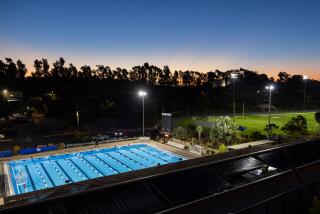Suit over charter school amended
- Share via
A serial whistle-blower who accused L.A. Unified of using deceptive means to squeeze more money from the state to help build a charter campus has dropped the case against the school system and current and former employees. A recent state Supreme Court decision immunizes government agencies from the False Claims Act, both sides said.
Kevin Reed, the Los Angeles Unified School District’s general counsel, said he was “very grateful that we don’t have to spend the time and the money defending a lawsuit that was destined to be dismissed eventually.”
The suit, filed by former schoolteacher Dennis Dockstader, continues against the Accelerated School and its principal figures, including co-director Johnathan Williams, who lost a bid to join the Los Angeles Board of Education in March. He categorized the suit as “a desperate attempt for financial gain,” because the False Claims Act entitles filers of such suits to 25% to 50% of any money recouped.
Dockstader, who has filed at least two similar lawsuits against the district, which Reed said were dismissed, could not be reached for comment.
His lawyer acknowledged that L.A. Unified had been immunized by case law but would not disclose why they also dropped the suit against four district employees, including Jim McConnell, who headed the building program at the time the charter school was built. The district was a named defendant in the initial lawsuit but not in the amended version.
The $50-million campus -- sorely needed in its overcrowded area of South L.A. -- was funded by a mix of state and local bond money and private donations raised by the charter school.
The heart of the controversy surrounds the land on which the school sits. Accelerated received the property, which housed a shuttered Carole Little clothing factory, as a donation. But when it came time to build the school, the district bought the land from Accelerated for about $6 million, money that the school then funneled back into the construction.
This move was beneficial because it garnered more money from the state, which reimburses districts for 50% of the cost of land purchases to build schools but uses a per-pupil formula to cap reimbursement for much of the rest of the costs.
Dockstader states in his suit that the approach was fraudulent, and he is seeking the return of all state money paid for the project, estimated at $12.5 million.
In response, the state Office of Public School Construction said it is conducting an audit of L.A. Unified records regarding construction of the school.
--
More to Read
Sign up for Essential California
The most important California stories and recommendations in your inbox every morning.
You may occasionally receive promotional content from the Los Angeles Times.













